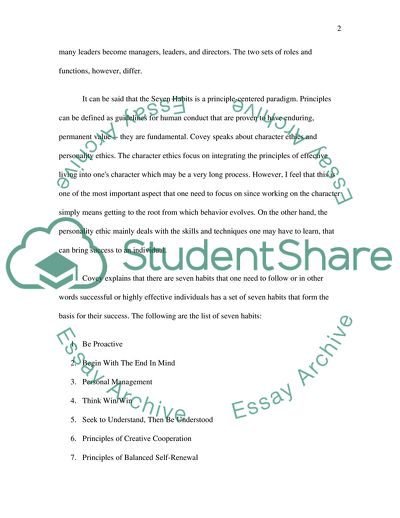Cite this document
(The Seven Habits of Highly Effective People by Stephen R. Covey Book Report/Review, n.d.)
The Seven Habits of Highly Effective People by Stephen R. Covey Book Report/Review. Retrieved from https://studentshare.org/psychology/1712219-7-habits-of-highly-effective-people
The Seven Habits of Highly Effective People by Stephen R. Covey Book Report/Review. Retrieved from https://studentshare.org/psychology/1712219-7-habits-of-highly-effective-people
(The Seven Habits of Highly Effective People by Stephen R. Covey Book Report/Review)
The Seven Habits of Highly Effective People by Stephen R. Covey Book Report/Review. https://studentshare.org/psychology/1712219-7-habits-of-highly-effective-people.
The Seven Habits of Highly Effective People by Stephen R. Covey Book Report/Review. https://studentshare.org/psychology/1712219-7-habits-of-highly-effective-people.
“The Seven Habits of Highly Effective People by Stephen R. Covey Book Report/Review”, n.d. https://studentshare.org/psychology/1712219-7-habits-of-highly-effective-people.


